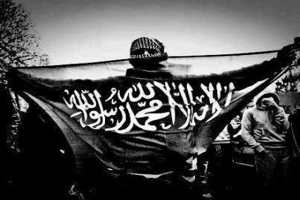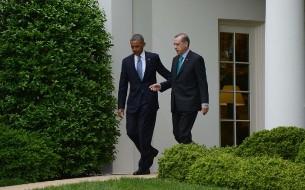Turkey and Syria’s Jihadis: More than Free Passage?
by Murad Batal al-Shishani (vol. 6, no. 10 of the Turkey Analyst)
On February 20, 2013, Syrian rebels and the Kurdish militia—which had fought each other for months in a town near the Turkish border—agreed to a ceasefire. Ras al-Ain is an ethnically mixed town of Arabs, Kurds, Armenians, Chechens, and so on. In the past few months, the town has become a theatre playing out Turkey’s fears concerning the ongoing crisis in Syria, its role and the relationship with various armed groups there, including jihadists. In addition to its close relations with the Free Syrian Army (FSA), Turkey has supported local jihadist groups in Ras al-Ain, while it appears to have proven unable to control or open links with the most influential jihadist group, al-Nusra.

Erdogan-Obama Differences over Syria Downplayed at Washington Summit
by Richard Weitz (vol. 6, no. 10 of the Turkey Analyst)
At their joint White House news conference, Turkish Prime Minister Recep Tayyip Erdoğan and President Barack Obama stressed their common desire to avert the use of chemical weapons in Syria, end the fighting through a peaceful transition to a post-Assad government, and prevent Syria from becoming a terrorist haven or the emergence of an autonomous Kurdish or threat to Syria’s territorial integrity. Yet, neither Turkey nor the United States is prepared to make substantial exertions to achieve these objectives, making it more likely that the Syrian civil war will continue to threaten regional stability, their relationship, and their other interests. Although analogies are never perfect, the Syrian situation resembles several similarly bad situations of recent years, with extremely negative implications for Ankara and Washington.





